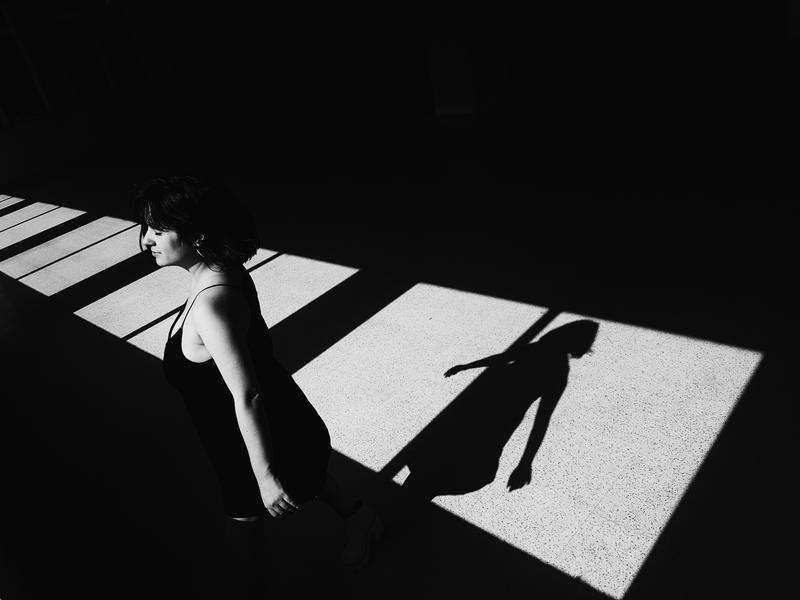by Corrine Watson
January 17, 2022
Corrine Watson is a freelance writer and editor based in Charlotte, NC and is Reviews Editor for West Trade Review. Her work has appeared in Wretched Creations and the Southern Review of Books. Follow her on Twitter @CorrineWatson6.
I Keep my Exoskeletons to Myself by Marisa Crane; Catapult; 352 pages; $27.00
Marisa Crane’s debut novel, I Keep my Exoskeletons to Myself, draws the reader into the intimate spaces of motherhood and grief as the narrator, Kris, navigates being a single parent when her wife dies in childbirth. Within the narrative, Crane expertly incorporates the Orwellian politics of an increasingly oppressive surveillance state with nuance that doesn’t overpower the narrative but adds to the external pressures the characters face. Through sharp poignant prose, Crane illustrates the emotional rollercoaster of grief, parenting and the power of community and resistance.
From the beginning, Crane captures the reader's attention with the startling, speculative nature of the book while introducing the multifaceted layers of conflict wrapped up in one moment. Upon her daughter's birth, and her wife's death, Kris’ baby is immediately given a second shadow. As part of a newly implemented crime reform, the President and the Department of Balance have abolished prisons with the catch that those who commit a crime will be marked with an extra shadow. Those with extra shadows are cast as second-class citizens known as Shadesters, who are subjected to additional tax, home surveillance, as well as an ever-growing list of restrictions and regulations. At times, the politics feels reminiscent to our own onslaught of conservative radicalization reflected in policy as Kris notes, “it hadn’t happened overnight, it took a million tiny stabs to bleed democracy dry,” and “like so many in power before him, President Colstein is an expert at tapping into the country’s shared anxiety, at using it to fuel mass delusion.” Outside of the government regulations, the more prominent result of the shadow policy is segregation and shame as Shadesters are viewed as social outcasts from ‘lawful’ society and forced to carry around proof of their guilt. Those without shadows assume the worst, even though the shadow policy does not differentiate between someone who committed a murder and a baby whose mother dies in childbirth. Crane uses this juxtaposition to pose the question of what is real crime and what is a just punishment. Unlike her daughter, the origin of Kris’ second shadow is an unspoken shame she clings to, and does not reveal until later in the book, which feels like an intentional choice Crane made to highlight the ways we want to categorize crime and the validity of punishment. But as Kris breaks through social isolation and builds a supportive community for herself and her daughter, the text resonates with hope and offers the counter argument that catharsis isn’t in justice but in redemption and forgiveness.
While the political constraints play a significant role in the character's lives, the context never overshadows Kris' personal journey through grief and parenthood. The novel’s first-person narration reads like an open letter, or more aptly, an open wound, as Kris’ thoughts are often directed to her late wife, Beau, who Kris is desperate to hold onto throughout the novel. The way Crane captures Kris’ grief is beautifully poetic in the way that it conjures images to represent the complicated feelings that are often difficult to put into words. She writes, ‘“I am Beau’s wife,” is something I can no longer say. My head feels the way watercolor looks when it bleeds. I wish someone would come dip their brush in me.” Kris teeters on the brink of an emotional breakdown, as she’d never fully processed or dealt with the shame and trauma of receiving her own second shadow and the tragedies just continue to pile on in a cosmic endeavor to suffocate her. Kris thinks, “I never feel like I know how to live in the world. Only on top of it, hanging on as it spins madly.” Melded into her grief are feelings of inadequacy, guilt and shame as she feels ill equipped to be a parent, and every move she makes has the potential for failure, but she’s ashamed to admit that she’d still trade the baby for Beau if she could. Within the narration, Kris often slips into stream of consciousness coping mechanisms such as listing creatures with exoskeletons, or reality test pop quizzes. These asides land with a punch and evoke a dramatic effect as it forces the reader to slow down and take in the harsh realities and truths weighing heavy on Kris’ consciousness.
The way Crane depicts Kris' struggle to adapt to being a single parent is handled with genuine care and creates a realistic portrait of the struggles of parenthood that don’t fit in the socially constructed norms of the nuclear family. As Kris dives into parenting blogs, she finds herself on the outside of what should be her new community. "The blogs tell me to focus on me and my family. Every family’s journey is different, avoid comparing notes. They don’t say anything about the absence of family." Kris feels isolated as a single parent, a queer parent, and a Shadester parent. Every part of her and her daughter’s identity puts them at odds with the status quo, but Kris is determined to find ways to teach her daughter about her second shadow without indoctrinating her with shame as the Department intends. She finds illegal children's books for Shadester kids to understand that even Shadesters can accomplish great things. This moment resonated as realistic in spite of the speculative nature of the text, as parents with diverse identities often struggle to find representation in children's media. It also felt timely as we see the rise in censorship of LGBTQ+ and racially diverse literature in schools.
I Keep My Exoskeletons to Myself stands out as a must read for the new year as Crane explores the depths of grief while maintaining a sense of rebellious hope as Kris rebuilds her family out of a community of outcasts. There is a stream of consciousness style of the writing that brings together Kris' remembrance, innermost feelings, and the present so fluidly that it feels effortless and makes the novel impossible to put down.
©2023 West Trade Review
__________________________________________________________________________________________________________________________________________________________________________
__________________________________________________________________________________________________________________________________________________________________________
__________________________________________________________________________________________________________________________________________________________________________
__________________________________________________________________________________________________________________________________________________________________________
__________________________________________________________________________________________________________________________________________________________________________
Casting Shadows: An Exploration of Grief, Parenting, and Resistance in Marisa Crane's I Keep My Exoskeletons to Myself
FICTION REVIEW
Stay Connected to Our Literary Community. Subscribe to Our Newsletter
Image by Fernando Rodrigues from Unsplash




